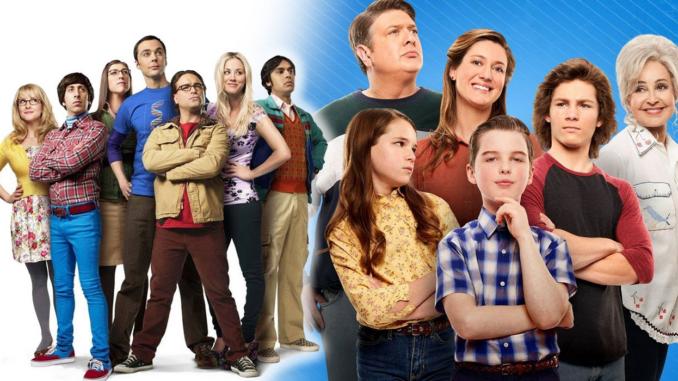
Introduction: Understanding Young Sheldon’s Emotional Response to George’s Death
The world of Young Sheldon has captivated audiences for years, offering a heartwarming and humorous glimpse into the childhood of Sheldon Cooper, a character famously portrayed in The Big Bang Theory. However, the show took an unexpected emotional turn when the series depicted the death of George Cooper Sr., Sheldon’s father. This unexpected twist left fans reeling, and it marked a poignant moment for both the character and the viewers.
But how did young Sheldon react to George’s death? And why was this such a significant moment in the show’s history?
In this article, we will dive deep into the emotional journey of Sheldon Cooper as he processes the loss of his father, all while exploring insights shared by Young Sheldon star, Iain Armitage, who brought the emotional scenes to life. We’ll break down the key moments and examine how Iain Armitage’s portrayal of Sheldon’s grief provided a deeper understanding of this beloved character.
1. The Unexpected Tragedy: George’s Death Shakes the Foundation of Young Sheldon
The Emotional Turning Point of the Show
In a shocking plot twist, George Cooper Sr. (Sheldon’s father) unexpectedly passed away, leaving the entire family in turmoil. For those who have followed the show from its inception, George’s death came as a heartbreaking moment, taking viewers by surprise. The death itself had a ripple effect, not only on the Cooper family but also on young Sheldon, who had always been used to his father’s tough yet loving presence.
As the show delves into the raw emotions of loss and coping, Sheldon’s reaction to his father’s death takes center stage.
How Did Sheldon React to Losing His Father?
For those unfamiliar with Sheldon’s character, his emotional responses are often… shall we say, complex. As a child prodigy, Sheldon’s understanding of human emotions is somewhat limited. This made his reaction to George’s death all the more significant.
Iain Armitage, who plays young Sheldon, portrayed the character’s grief with remarkable depth, showing that despite Sheldon’s intellectual brilliance, he is still a child deeply affected by the loss of a parent.
2. Iain Armitage’s Perspective on Playing Sheldon in the Wake of George’s Death
Bringing Realism to a Fictional Character
In a recent interview, Iain Armitage shared his thoughts on playing Sheldon during such an emotional moment. He explained that while Sheldon’s intellectual capacity may set him apart from other kids, his emotional journey was very much human. Armitage reflected that portraying Sheldon’s grief was a delicate balance between staying true to the character’s idiosyncratic nature and allowing his raw emotion to shine through.
“It was definitely a challenge,” Armitage admitted. “Sheldon doesn’t always know how to express himself, but that doesn’t mean he isn’t feeling deeply. I had to find a way to show that contradiction in a believable way.”
3. Sheldon’s Inability to Express Grief: A Complex Reaction
Understanding Sheldon’s Unique Emotional Response
Sheldon’s inability to deal with emotions effectively is one of the defining characteristics of his personality. When George dies, Sheldon doesn’t immediately break down in tears. Instead, he processes his emotions in his own, rather unique way. This highlights the complexity of Sheldon’s character and how he navigates situations that most people would find overwhelming.
Sheldon doesn’t fully grasp the concept of death in the same way others do. While he is devastated by the loss, his reaction is far from typical. This is evident when he tries to analyze the situation logically, despite the emotional chaos around him. Sheldon’s intellectual approach to dealing with loss adds a layer of complexity to his character, making his emotional journey all the more powerful.

4. The Role of Family and Community in Helping Sheldon Cope
The Importance of Support Systems After a Loss
While Sheldon struggles to express his grief, the presence of his family becomes crucial in helping him process the loss. His mother, Mary Cooper, and older brother, Georgie, play pivotal roles in supporting Sheldon during this difficult time. The family’s dynamic evolves, with each member struggling to cope with the tragedy in their own way.
Sheldon’s interactions with his family members also highlight his growth as a character. Although he doesn’t always understand why others are so emotional, he begins to learn how to lean on them for support, even if it’s just in small ways.
“Family is everything to Sheldon,” Iain Armitage mentioned. “Even when he doesn’t show it, he relies on them more than he realizes.”
5. The Lasting Impact of George’s Death on Sheldon’s Character
Sheldon’s Evolution After Loss
The death of George Sr. was not just a plot point – it was a catalyst for character development. Following the loss, Sheldon undergoes subtle but significant changes. While his outward behavior may not change drastically, his emotional maturity begins to evolve. He starts to open up more to his family and even finds comfort in moments of vulnerability.
“It’s a long-term effect,” Armitage explained. “Sheldon doesn’t just bounce back. His grief shapes him, and it’s something that sticks with him throughout his journey.”
6. How Iain Armitage’s Performance Delivered the Emotional Weight
Acting Through Grief
Iain Armitage’s portrayal of young Sheldon’s grief was nothing short of brilliant. His ability to convey Sheldon’s deep sorrow, even when the character doesn’t express it in a traditional way, was a testament to Armitage’s skill as an actor. By capturing the complexity of Sheldon’s emotions, he allowed the audience to feel the weight of the loss without relying on obvious displays of emotion.
The moment when Sheldon is left alone to process his father’s death is one of the most powerful scenes in the series. Armitage’s performance in this moment beautifully captures the complexity of grief, making it clear that while Sheldon may not know how to express his feelings, he is deeply affected by the loss.
7. The Heartbreaking Goodbye: The Scene That Left Fans Speechless
The Emotional Scene That Defined the Episode
One of the most memorable scenes in Young Sheldon occurred when Sheldon says his final goodbye to George. The quiet, understated nature of the scene – combined with the emotional weight carried by Armitage’s performance – left fans devastated.
While there was no dramatic confrontation or shouting match, the scene was deeply moving precisely because of its subtlety. It showed that grief doesn’t always have to be loud or obvious to be profound.
Conclusion: Sheldon’s Emotional Journey is Far From Over
In the wake of George’s death, Sheldon’s character evolves in ways that viewers may not immediately notice. Through the outstanding performance by Iain Armitage, we see a side of Sheldon Cooper that is not defined by his intellect but by his vulnerability and growth. While Sheldon may never fully comprehend or articulate his grief, his reaction to the death of his father serves as a poignant reminder that even the most logical minds are affected by the most human emotions.
FAQs
1. Why is George’s death such a significant moment in Young Sheldon?
George’s death marks a major turning point in the series, as it forces Sheldon to confront his emotions in a way he never has before. It deepens the character development of both Sheldon and his family.
2. How does Sheldon cope with the death of his father?
Sheldon’s coping mechanism is unique. He doesn’t express his grief in conventional ways, but instead processes it through logic and subtle emotional moments, which are revealed gradually.
3. What role does Iain Armitage play in portraying Sheldon’s grief?
Iain Armitage brilliantly captures Sheldon’s complex emotions, conveying his grief in a nuanced way that stays true to Sheldon’s character while still allowing for growth.
4. Will Sheldon’s reaction to George’s death affect future episodes?
Yes, Sheldon’s emotional journey post-George’s death will likely continue to influence his development and interactions with his family, showcasing his gradual emotional maturity.
5. Why is Sheldon’s approach to grief so different from other characters in the show?
Sheldon’s intellectual nature and his limited understanding of emotions make his reaction to grief unique. He doesn’t express his feelings like others, making his journey of coping both compelling and poignant.